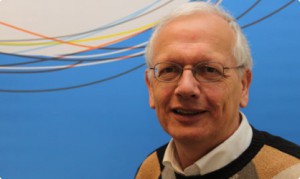Fake-news is a fact of life, definitely after 2016. The most new is the word ‘fake’ which is attached to parts of our daily conversations, since it represents something we are already used to. Gossiping has a smell of fake. As has the saying ‘I have been economically with the truth’. Deliberately presenting things in a way which will cause a changed mind-set for those who listen – it is part of the strategy to convince people about the wish that they should believe the source and therefore agree with the attached judgement.
In daily life it happens more often that the given representation of facts is perceived differently by different listeners. The representation is not correct – we sometimes say. And by consequence the outcome of the reasoning on these facts is considered false as well. To avoid this as much as possible we have an exchange of arguments, look for the reliability of the source of the presented facts, discuss different viewpoints. That is almost the normal attitude in most of the work of the members of Oikosnet Europe. We live from the uncertainty about facts and the interpretation of these facts. And we discuss them at our meetings and conferences.
When doing so, we mostly follow a pattern – which I learned to see after our former General Secretary Wolfgang Lenz showed me his model, named ‘The Four Resources for the Management of Meaning’. The first one in “information” – mostly presented as facts. More and more almost indisputable presented in the form of a 1 or 0. However, information in itself can be incorrect. Therefore we apply checks – in science known as the Popper principle of falsifiability – to discuss whether we should consider facts as correct facts on which we can build good conclusions. Information, facts only have a meaning when placed in a framework of knowledge. As an example: the statement “It is 3 0C outside” represents a fact, the knowledge added is that this is very cold for human beings and by consequence they are advised to put on a coat. “Knowledge” is the second resource.
The third one is, in my representation of Wolfgang’s scheme, “values”. Through values we prioritise our behaviour, for instance when we are outdoors with a temperature of 3 0C, but we stay there without putting on a coat since we meet with a friend who has had an accident. We stay outside and offer as much help as possible. Then we prioritise some of our values. Being cold, probably getting sick for some days, is not as important as helping the friend. Where does this priority comes from when dealing with our different values?
This questions leads to the fourth resource: faith, world view, belief-system. People generally use different words for this resource. The important thing: it deals with the background of our personal priorities in the values. Our view on life. Our accepted characteristics and convictions.
For me the big questions don’t deal with these four elements as such. Facts are part of our lives, as priorities and values are. The big questions deal with the availability to raise questions about them. And to be open for a reaction on these questions. If that is refused, the ultimate position is that no discussion at all is possible. Science doesn’t matter anymore. Logic isn’t helpful. A real exchange on views, on perceived realities are not required anymore. We just follow the first speaker. Or the dictator.
Today, while writing this contribution, we have general elections for the parliament in the Netherlands. Democracy at its best. A feast, some people say. The feast can only be recognised in this way when we continue the work to communicate about the different views, when we build arguments. When we do our work as members of Oikosnet Europe.
Jaap van der Sar, President Oikosnet Europe

